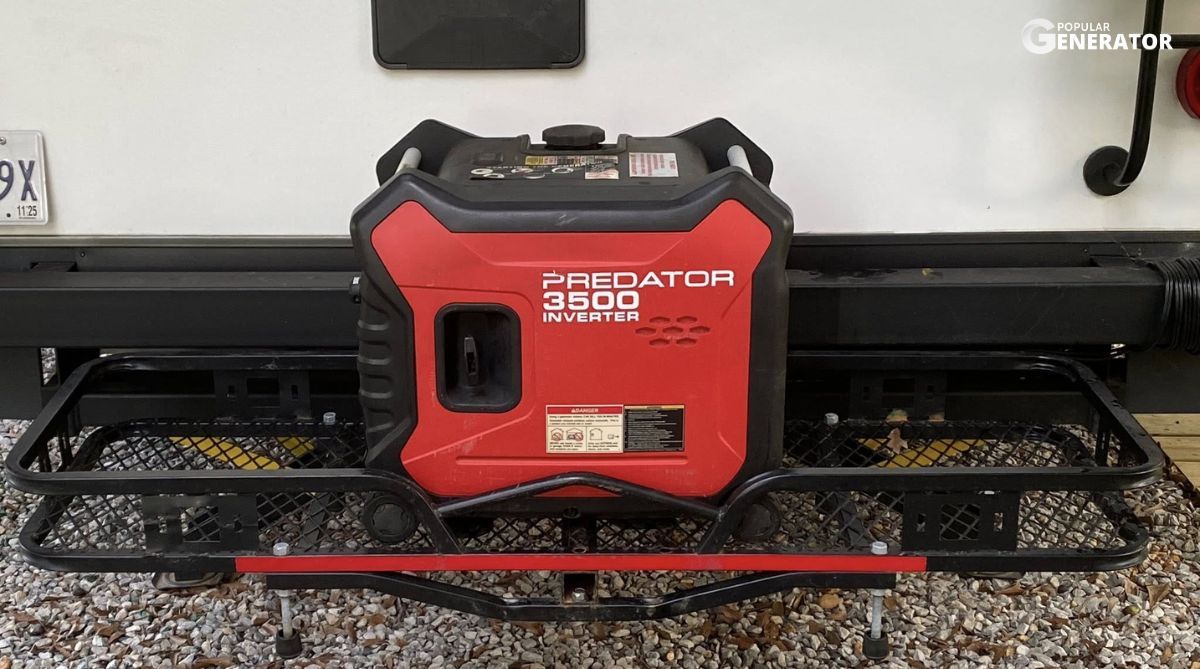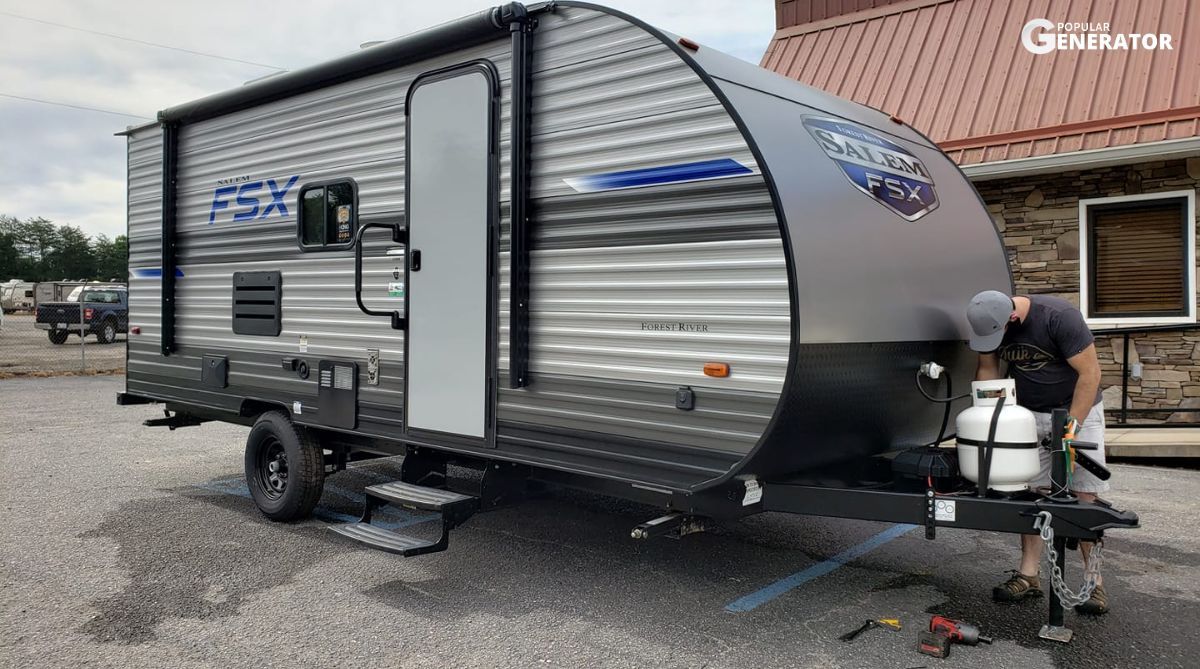Finding the Right Generator for Your Travel Trailer Adventures
After testing dozens of generators across three years of full-time RV living, I can tell you that picking the wrong one will make your road trips miserable while the right choice becomes your most trusted camping companion.
Power output is your starting point, but don't just chase the biggest numbers. Most travel trailers need between 2,000 and 3,500 watts to run essential appliances comfortably. I learned this the hard way when I first bought a 1,800-watt unit thinking it would handle everything. It ran my lights and charged my devices just fine, but the moment I tried running the microwave and air conditioner simultaneously, the generator would bog down and shut off. Now I recommend calculating your actual power needs by adding up the wattage of appliances you'll run at the same time, then adding 20% as a safety buffer. A 3,000-watt inverter generator has become my sweet spot for handling the AC unit, fridge, and a few other devices without breaking a sweat.

Runtime matters more than you think, especially during those hot summer nights. I've found that an 8-hour runtime on a single tank is the minimum you want for overnight use. My current dual-fuel generator runs about 10 hours on propane at quarter load, which means I can sleep comfortably with the AC running without getting up to refuel. Gasoline typically gives you more power per gallon, but propane is cleaner burning and stores indefinitely without going stale. I keep both fuel types on hand, but I rely on propane for most camping situations since it's quieter and doesn't leave that lingering gas smell around the campsite.
Noise levels can make or break your camping experience and relationships with neighbors. Most campgrounds enforce quiet hours with decibel limits around 60 dB, which sounds reasonable until you realize that many cheaper generators hit 65-70 dB even at half load. Inverter generators cost more upfront but run significantly quieter, usually staying under 58 dB at quarter load. I've camped next to people running loud contractors' generators at 6 AM, and trust me, you don't want to be that person.
Portability becomes crucial when you're dealing with limited storage space and the reality of moving your generator multiple times per trip. Weight matters, but so does the design. Look for generators with good handles and wheels that actually work on uneven ground. My 75-pound unit with decent wheels is far easier to manage than the 60-pound model I had before with cheap plastic wheels that constantly got stuck.

The biggest mistake I see RVers make is buying based on price alone without considering fuel type flexibility and clean power output. Cheap modified sine wave generators will damage sensitive electronics like laptops and phone chargers over time. Spend the extra money for true sine wave output, and consider dual-fuel capability if you want real flexibility on the road.
Conclusion
Finding the best generators for travel trailer use comes down to balancing power, portability, and quiet operation. A quality 2,500 to 3,500-watt inverter generator transforms your RV experience, letting you run the AC through hot nights and keep essentials powered during extended boondocking trips. After testing different models in real camping situations, spending more upfront for clean power output and dual-fuel capability pays off quickly. The right generator gives you true independence on the road, reliably delivering power when you're miles from the nearest outlet.
Frequently Asked Questions
1. What size generator do I actually need for my travel trailer?
Most travel trailers do well with a generator between 2,000 and 3,500 watts, but it really depends on what you want to run. I've found that a 3,000-watt unit handles the essentials without breaking a sweat. You can run your air conditioner, keep the fridge going, charge devices, and have lights on simultaneously.
The key is adding up the wattage of everything you might use at once. Your AC unit probably pulls around 1,300-1,500 watts when it kicks on, the microwave needs about 1,000 watts, and smaller items like LED lights and phone chargers add maybe 200 watts total. I always recommend going a bit bigger than your calculated needs because generators run more efficiently and last longer when they're not maxed out constantly.
2. How long will a generator run on one tank of fuel?
Runtime varies quite a bit depending on the load you're putting on it, but most decent generators will give you 8-10 hours at about 25% load. That's usually enough to run a few lights, charge devices, and cycle the AC periodically through the night.
I've gotten 12 hours out of my dual-fuel generator running on propane at low load, which is perfect for overnight comfort. Gasoline typically gives you a bit more power per gallon, but propane burns cleaner and doesn't go bad sitting in storage. If you're planning to run high-draw appliances like the air conditioner continuously, expect that runtime to drop to around 6-8 hours per tank.
3. Are the best generators for travel trailer use really that much quieter than regular ones?
Absolutely, and it makes a huge difference in campgrounds. Traditional contractors' generators often run at 65-70 decibels, which sounds like a lawnmower running constantly. Inverter generators, which are typically the best generators for travel trailer applications, usually stay under 58 decibels at quarter load.
I've camped in sites where quiet hours start at 8 PM, and some campgrounds have strict noise limits during the day too. My inverter generator is quiet enough that I can have a normal conversation sitting right next to it. Your neighbors will definitely appreciate the difference, and you won't feel like you're disturbing the peace of nature every time you need power.
4. Can I run my generator inside my trailer or in the storage compartment?
Never run a generator inside your trailer or in any enclosed space, period. Even with ventilation, carbon monoxide can build up quickly and become deadly. I always set mine up at least 10 feet away from my trailer and any neighboring RVs, with the exhaust pointing away from living areas.
Many people try to muffle the sound by putting generators in storage compartments or under tarps, but this creates serious safety risks. Some of the newer models have built-in carbon monoxide sensors that will shut the unit down if CO levels get dangerous, but proper placement is still critical. Fresh air circulation is non-negotiable when it comes to generator safety.
5. How much maintenance do these generators actually need?
More than you might expect if you want them to start reliably when you need them most. I learned this the hard way when my generator wouldn't start after sitting unused for three months. Now I run mine for about 15 minutes every month, even when it's in storage.
The basics include changing the oil every 50-100 hours of use, replacing the air filter annually, and checking the spark plug. If you use gasoline, either drain the tank before storage or use a fuel stabilizer. Propane eliminates most fuel-related maintenance headaches, which is one reason I prefer dual-fuel models. Spending 20 minutes on maintenance every few months beats being stuck without power when you're 50 miles from the nearest repair shop.
6. Will a generator damage my sensitive electronics like laptops and phone chargers?
Cheap modified sine wave generators can definitely cause problems with sensitive electronics over time. Inverter generators produce what's called "clean power" or pure sine wave output, which is safe for all your devices including laptops, phones, and even things like CPAP machines.
I've seen people fry laptop chargers and have issues with LED lights flickering when using modified sine wave generators. The power quality just isn't consistent enough for modern electronics. Pure sine wave inverter generators cost more upfront, but they're worth every penny when you consider the cost of replacing damaged devices. Plus, many electronics actually run more efficiently on clean power, which can help extend your generator's runtime.















